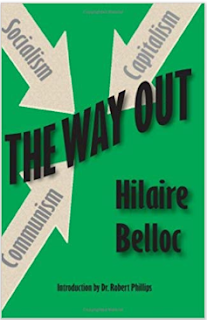* "In denying the efficacy of good deeds and of the human will, of abnegations, in leaving on one side as useless all the doctrine and tradition of Holy Poverty, Calvin opened the door to the domination of the mind by money."
* "Calvin himself would have said with learning, sincerity, and zeal that the glory of God was the only object worthy of human activity, but as he divorced such activity from the power of saving the individual soul, what could there remain save the pursuit of riches?"
~Hilaire Belloc: "The Crisis of Civilization."
Read more: https://bit.ly/2BqQ2Si




















